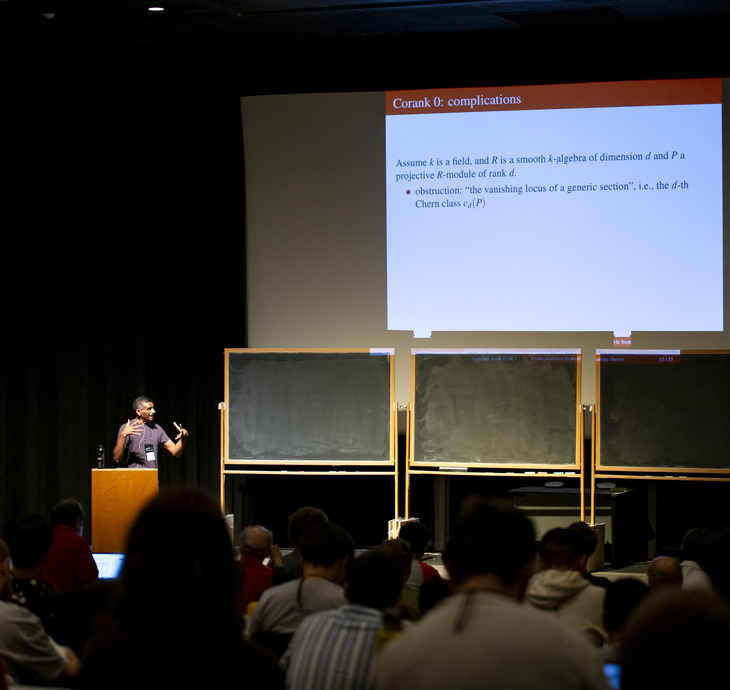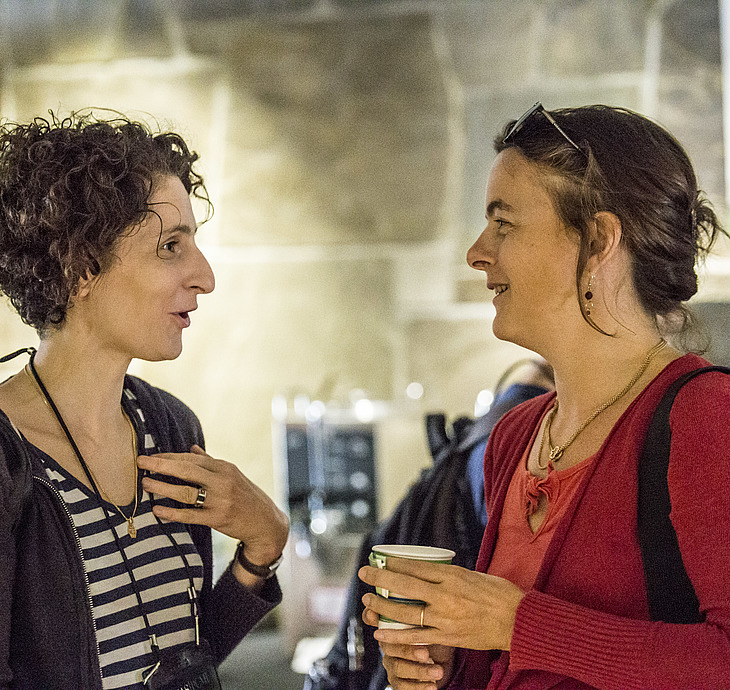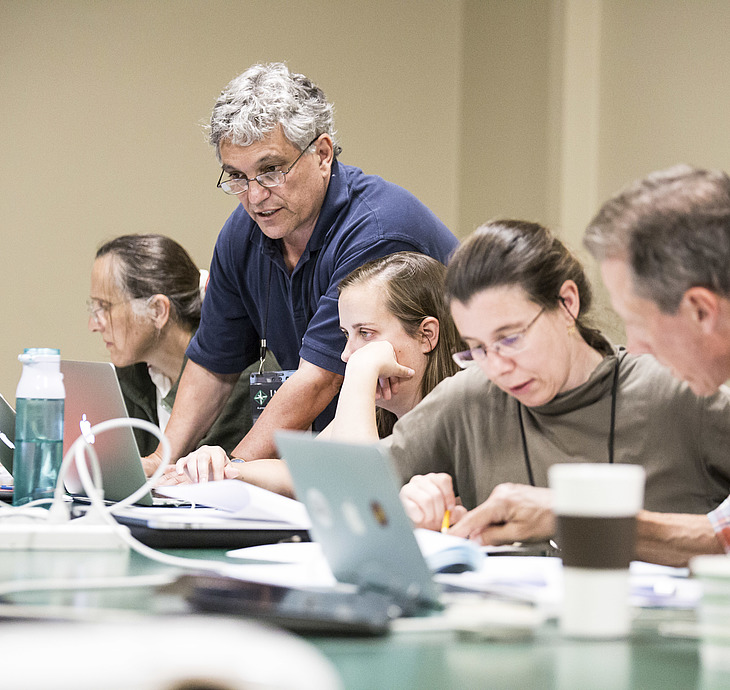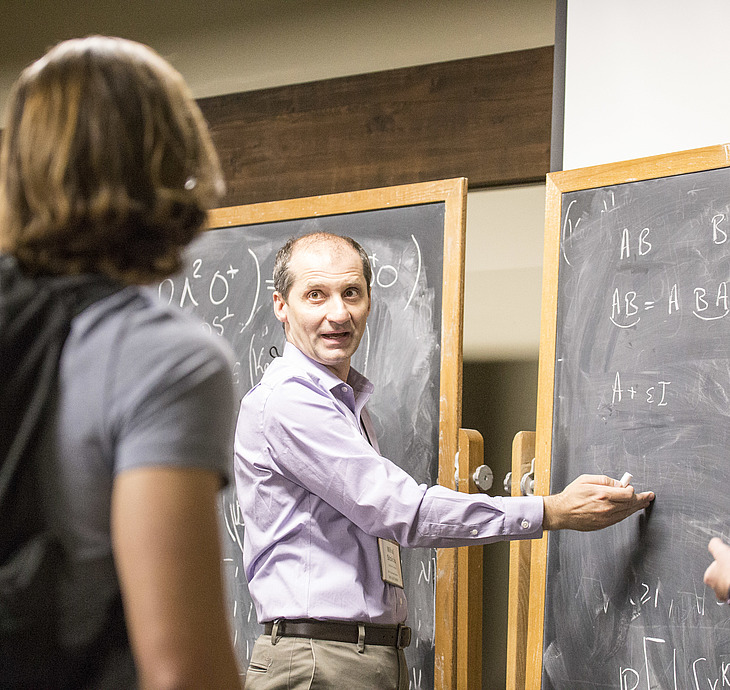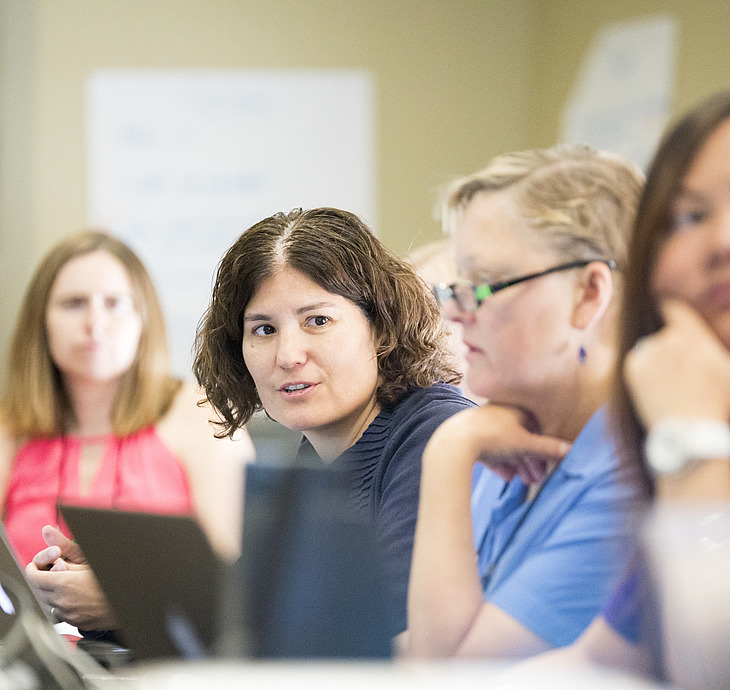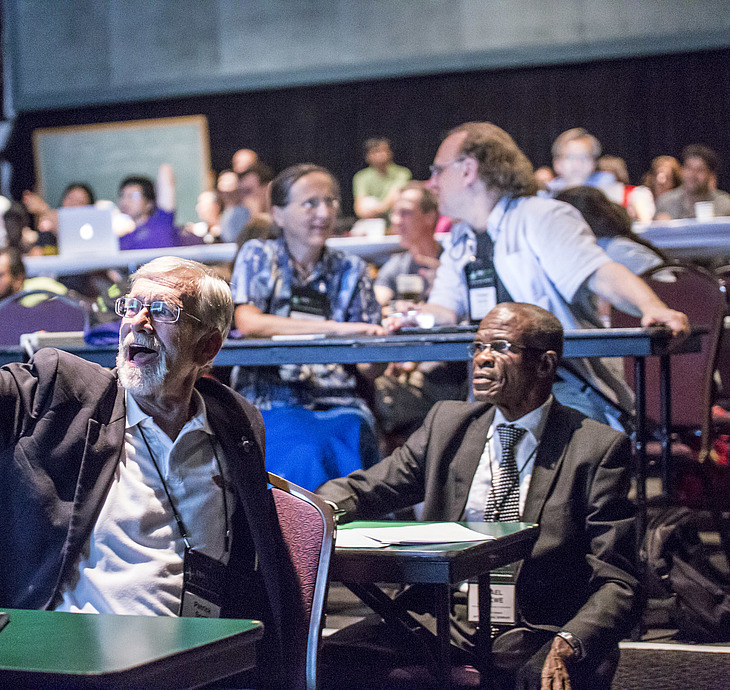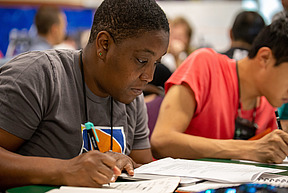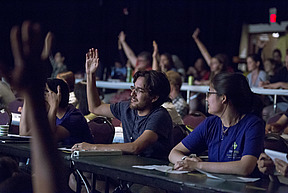
PCMI 2021 Teacher Leadership Program
Making Mathematical Connections
The Teacher Leadership Program (TLP) at the IAS/Park City Mathematics Institute (PCMI) Summer Session is usually a three-week residential professional development program for school teachers in grades 3-12, held in Park City, Utah, as part of the larger PCMI program that involves all members of the mathematics community. However, due to Covid-19, the 2021 TLP will be held virtually in three (independent) one-week sessions. The purpose of the TLP is to provide opportunities for teachers to experience and enjoy mathematics while participating in developing the art of teaching.
The Teacher Leadership Program at PCMI will be held July 11-31, 2021.
2021 Virtual TLP applicants may choose from among these weekly options. You may choose one, two or all three weeks, but must be able to attend the entire session for each week you select.
- July 12-16: Fibonacci Recurrences
- July 19-23: Geometry & Complex Numbers
- July 26-30: Hands-on Combinatorics
The Teacher Leadership Program at PCMI continues to be structured around three goals:
Teachers should be:
- continuing to learn and do mathematics
- analyzing and refining classroom practice
- serving as resources to colleagues and the profession.
These goals are reflected in the three strands that comprise the core summer courses and activities.
Goal 1: Math Course
Week 1 - Fibonacci Recurrences
Lead by Bowen Kerins and Darryl Yong
Many sequences of numbers can be described recursively. Probably the most famous of these is the Fibonacci sequence: 0, 1, 1, 2, 3, 5, 8,.... In this course, participants will explore these recursive sequences and develop tools for analyzing them. No specific mathematical prerequisites are necessary, other than familiarity with algebra; no matter your expertise we are confident you will find new observations and connections. By the end of the week, participants will have a useful toolkit of techniques that can be applied to many different areas.
Week 2 - Geometry & Complex Numbers
Lead by Patrick Honner
Complex Geometry made Simple
The complex numbers are one of the great achievements of algebra, but their geometry may be even more compelling. Join us as we explore the complex connections between elementary geometry, inversion, rotations, functions, and more! The shortest path to real truth may involve a detour through the complex plane, but in this course we’ll be sure to take time to enjoy the journey.
Week 3 - Hands-on Combinatorics
Lead by Brian Hopkins
Discrete math provides a rich opportunity to develop different ways of exploring and understanding mathematics. Come experience hands-on combinatorics as we use colored rods to build "trains" that show Pascal's triangle, the Fibonacci numbers, and more. We'll use visual and tactile learning to find and verify patterns in these beloved mathematical objects, allowing us to know the results in a deeper way.
Goal 2: Reflecting on Practice -From Epistemic Stance to Taking a Stand
Teachers’ instructional decisions are driven, defined, and prescribed by their epistemic stance, whether that stance is explicitly expressed or unconsciously manifested. We will spend time examining the essential nature and aspects of a teacher’s epistemic stance, including its origins and implications. We will then stretch ourselves to the point of becoming uncomfortable in confronting ways that our epistemic stance also holds any/all of our implicit biases. Taking the next step, we will begin the work of naming and reframing those biases to move towards crafting more inclusive classrooms. Our time together will conclude with an examination of how to support and mentor other teachers of mathematics to engage in this work. The Math Equity Toolkit from equitablemath.org will be used throughout.
Week one: Epistemology and defining & refining the beliefs and perspectives that shape who we are and the choices we make as mathematics educators
Week two: The role of implicit bias in our own experiences as learners & educators, its impact on our epistemic stance, and ways to recognize, name and act in opposition to our own biases
Week three: Moving towards being anti-racist teachers of mathematics while simultaneously working to invite, inspire & support others in joining with us in this journey
Sample Weekly Schedule:
| Hawaii | Pacific Coast | Park City | Central | Eastern |
Morning Math | 8:30AM to 10:40 AM (inc. 10 min break) | 8:30AM to 10:40 AM (inc. 10 min break) | 9:30AM to 11:40 AM (inc. 10 min break) | 10:30AM to 12:40 AM (inc. 10 min break) | 11:30AM to 1:40 AM (inc. 10 min break) |
35 minute break | 7:40 AM to 8:15 AM | 10:40 AM to 11:15 AM | 11:40 AM to 12:15 AM | 12:40 AM to 1:15 AM | 1:40 AM to 2:15 AM |
Reflect on Practice | 8:15AM to 9:30 AM | 11:15 AM to 12:30 PM | 12:15 PM to 1:30 PM | 1:15 PM to 2:30 PM | 2:15 PM to 3:30 PM |
Cross-program goodies | TBD -3 | TBD | TBD + 1 | TBD + 2 | TBD + 3 |
